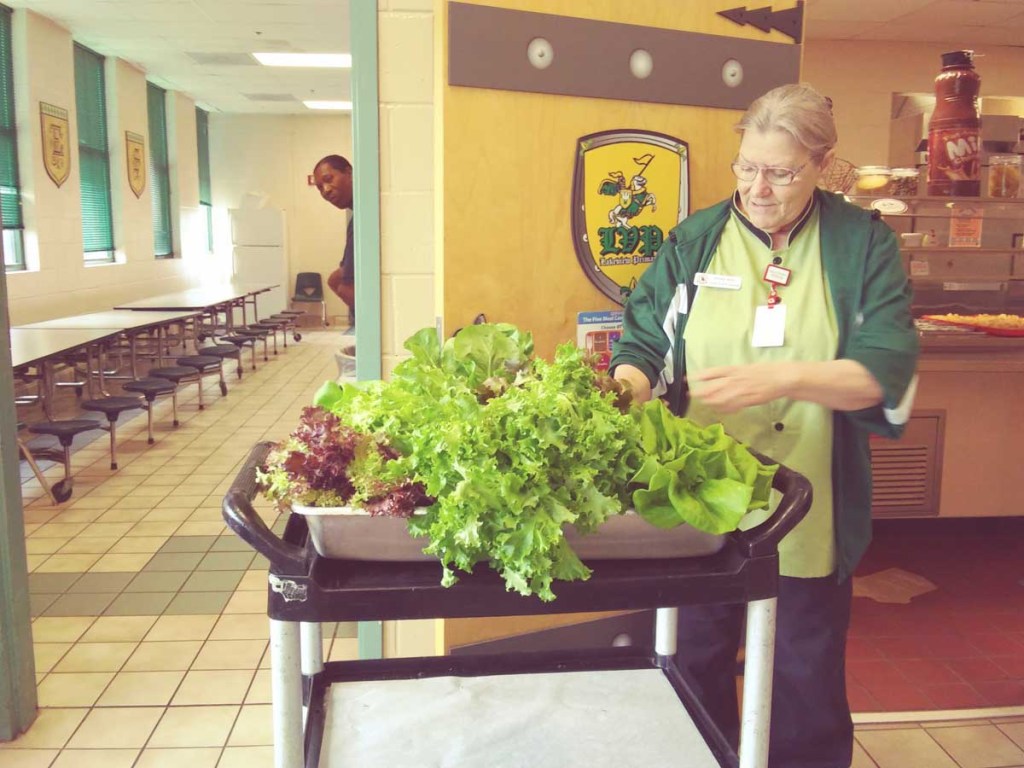School district unaffected by lettuce recall
Published 9:15 am Wednesday, May 2, 2018

- The Baldwin County School District recently changed lettuce distributors to R and G Farms out of Dublin. The move has been a good one for multiple reasons: Nutrition Director Susan Nelson says it is a better deal financially and it means diners are safe from the recent E. coli outbreak tied to romaine lettuce.
MILLEDGEVILLE, Ga. — A recent E. coli outbreak tied to romaine lettuce grown in Arizona will not affect Baldwin County School District cafeterias and their patrons, according to the district’s nutrition director.
Trending
Students and school district employees have instead been chowing down on leafy greens grown less than an hour down the road since the lettuce recall that took place a couple of weeks ago.
“Coincidentally the same time the recall was done for E. coli I had signed a purchasing agreement with R and G Farms out of Dublin for their hydroponically grown lettuces,” said school nutrition director Susan Nelson. “We received our first delivery two weeks ago and it has been an awesome experience.”
Nelson said the initial plan was to utilize the new lettuce source for one week as a featured “Georgia Grown” item, but the plan shifted after the recall that resulted from the outbreak.
“We were originally going to be using them as a Georgia Grown vendor for special occasions, but now we will use them all the time,” the nutrition director said. “They carry romaine, bibb, lola rosa, green oak leaf and red oak leaf. R and G’s lettuces are very fresh and visibly different than what we received previously. We wash and mix for salads daily.”
Hydroponics refers to the method of growing plants without soil, using mineral nutrient solutions in a water solvent instead. R and G lettuce is grown both free of dirt and free of pesticides before each head is harvested with the roots attached.
“Their lettuces with assorted varieties are very fresh and clean because, of course, they never touched dirt as they are grown with water only,” said Nelson. “We are now going to be purchasing from them from here on out and we’ll be receiving a delivery every Monday morning. Not only will this be a safer food source, but it’s a locally-grown item. Our student customers love the freshness and the variety.”
Trending
The Center for Disease Control reported that as of Thursday 98 people across 22 states have been infected with the recent strain of E. coli. Only one person in the state of Georgia has been infected thus far according to the report, with most of the cases having occurred in Pennsylvania (18).
The United States Food and Drug Administration (FDA) has said the recent E. coli outbreak is linked to lettuce grown in the Yuma, Arizona area, which generally supplies romaine lettuce to much of the U.S. from November to March each year. The growing season for the region has come to a close for this year, but the infected product could still be out there.
“If you cannot confirm the source of the romaine lettuce, do not buy it or eat it,” reads a warning on the FDA website. “If you have already purchased romaine lettuce or products containing romaine lettuce and cannot confirm the source, throw them away. … The FDA continues to recommend that the public not consume romaine lettuce grown in the Yuma growing region.”
Escherichia coli bacteria normally live in the intestines of people and animals. Most E. coli bacteria are harmless, but some carry diseases that can cause diarrhea. The bacteria is often spread through animals defecating in or around water sources used to grow plants. The exact cause of the current outbreak has not been pinpointed as contamination could have occurred along the growing, harvesting, packaging, or distribution chain according to the CDC.





